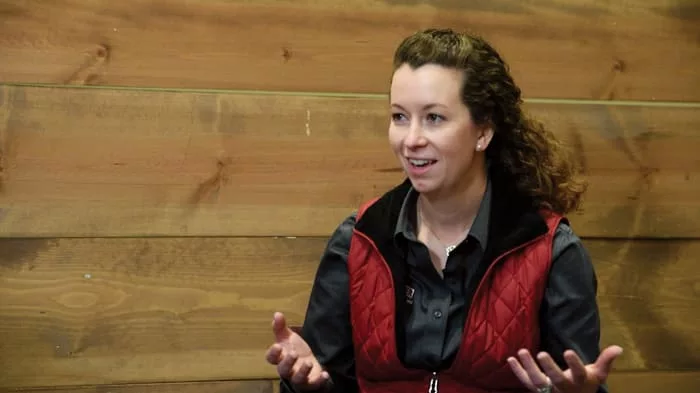Recruiting outstanding employees is one of the many challenges precision dealers face in today’s job market. Having the best employees can make a huge difference with forging positive long-term relationships with both current and potential customers.
So how does a precision dealer go about finding and retaining great talent? We chatted with Heather Hardy, precision farming coordinator with H&R Agri-Power, an 18-store Case IH dealership with stores in Kentucky, Tennessee, Illinois, Indiana, Mississippi and Alabama, to get her insights on how to build a dream team at your dealership.
Precision Farming Dealer: Heather, can you give us a better understanding of your philosophy when it comes to finding and retaining talent?
Heather Hardy: I work with the store manager and general manager for each specific location when hiring for our precision specialist positions. I handle the phone interviews and initial recruiting steps and then turn it over to the store manager. From there, the store manager facilitates in-person interviews. It’s very important that the person not only meshes with the culture of our precision department, but also the local store culture. We’re fairly spread out geographically, with lots of different crops, so cookie cutter doesn’t fit our situation.
PFD: When establishing the right fit for a location, how do you set expectations for what an individual precision role is going to entail, such as sales, service, parts, etc.?
Hardy: Our team is really focused on being customers’ end-all, be-all in the technology world. I jokingly refer to my team as the geek squad for farm equipment — that’s what we do. Our sales team makes contact with the customer and gets the equipment sale, but then my precision team comes into those conversations to discuss what can be added to the package. There are some times in that sales process where the salesperson is unsure of the customer needs, so the precision team member is able to really customize that package and make sure the customer is getting precisely what he needs for his or her operation.
PFD: When you’re onboarding new employees, how do you outline a structured path so they know what to expect?
Hardy: The worst thing that can happen is if a new employee show up on day one and no one knows what to do with them. We try to consistently train our people so they all have the same basic concepts to do their job well, even if they’re located in very different markets. I’ve created an onboarding checklist, which can be used by a store manager or me. Having that defined method for onboarding and training makes sure that the small details don’t get forgotten.
PFD: What do you see as some of the biggest pitfalls when hiring and training new precision employees?
Hardy: As an industry, we need to do a better job of not creating unrealistic expectations, especially with regards to the hours that we expect people to put in and the effort that we expect them give. There’s a lot of reassurance to college students that they’re not going to be the perfect precision specialist on day one, but we expect you to work hard.
Sometimes, in this business, we set ourselves up with the unrealistic expectation that we just punch buttons and play with our cell phones and we’re not doing real work — that the troubleshooting is left to the service department. My team is very heavily involved in troubleshooting, and you’re going to have to put in some work and effort. There’s going to be some long days, and I think you have to set that precedence on day one, or you lead that person down a path that ultimately leads to their unhappiness.
PFD: How have expectations changed, even since you’ve started?
Hardy: I’ve seen a progression where jobs or phone calls that normally would’ve gone to my precision specialists have transitioned to a salesperson or the service department. Ultimately, that will help with our burnout because we’re going to spread that work load out. We’re not today, but that’s something we can all work on and continue to improve on.
PFD: Realistically, is there a way to prevent burnout in this industry, or is it inevitable?
Hardy: The ultimate responsibility is on the manager. They’ve got to see that burnout coming. Millennials like to check in more often. That’s a perfect opportunity for a manager to gauge their stress level and emotional and mental state. That manager has to step in and say, ‘Hey, take Friday off, take a 3-day weekend.’ I’ve seen professionals talk about taking a mental health holiday and I think we’ve got to create some awareness with managers that precision specialists need mental health breaks.
Individuals also have to be very self aware, and people who are really good time managers and manage themselves well; they know their burnout level. Managers really have to cultivate a relationship with employees so they can come to their manager when they need help.
PFD: What advice would you have when it comes to hiring and retaining employees?
Hardy: If you’re in a leadership role in your precision department, be the one at the career fair shaking students’ hands. That goes far, and you know better than anyone else in your company what your department does. If recruiting is your weak point, put some personal effort into helping recruiting grow and be stronger. Look at what you’ve done, take what has and hasn’t worked for you, and learn from employees. Exit interviews can be the most valuable thing you get from an employee, you might learn something that keeps the next employee from leaving.







